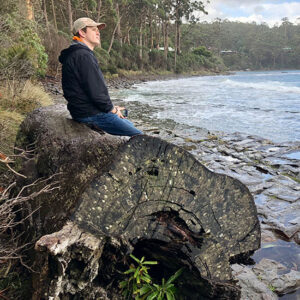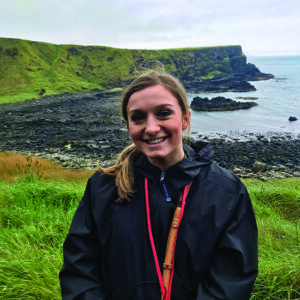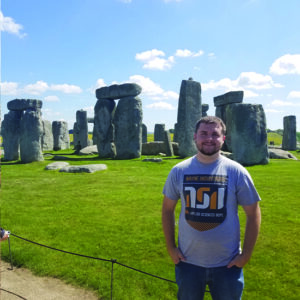Lance Saunders
“Programs like the Integrated Business and Engineering Program (IBEP) are assisting our students as well as the business community in strengthening the parallels between business and engineering."
Global Supply Chain Institute, Supply Chain Management - Faculty
After 15 years away from campus with an impressive career at KUB and Virginia Commonwealth University, Lance Saunders returned to the University of Tennessee’s Haslam College of Business and to attend football games at Rocky Top.
Saunders is an assistant professor on the supply chain side of the Department of Marketing and Supply Chain Management where he teaches an introductory course in supply chain analytics. His research focuses on supply chain sustainability and network design.
Saunders has three degrees in industrial and systems engineering (two from UT) and an MBA from Haslam, which has served him well in fostering collaboration between the business and engineering disciplines.
“There is a large push to grow the relationship between the Tickle College of Engineering and the Haslam College of Business,” he says. “Programs like the Integrated Business and Engineering Program (IBEP) are assisting our students as well as the business community in strengthening the parallels between business and engineering, which is what most of my career has focused on.”
Although he has worked in the corporate sector, Saunders’ passion about students and their desire to learn drove him back to academics.
“The students in my classes are just so impressive, not just in the classroom; they are the total package,” Saunders says. “I believe in our department that over 80 percent have internships and are just doing the things in general that it takes to get jobs at the top companies. You almost have to close your door sometimes because many of the students are so eager. That is a good problem to have.”
Saunders aims to follow in the footsteps of many professors that made an impact on his career such as Rupy Sawhney, Missie Bowers and Sarah Gardial. One means by which he supports students is in their aim to pass the Council of Supply Chain Management Professionals’ (CSCMP) SCPro Certification.
“We had 12 students take the SCPro certification last semester and 11 passed!” he says. “The test is basically the equivalent of the green belt in lean. These students studied weekly outside of their normal class schedule and then took a test with eight parts that takes four hours. This shows employers that the students have the dedication and discipline to further their education and have a baseline knowledge of all of the key functions in the supply chain. Some potential employers even give a pay increase for certifications like this.”
Saunders worked closely with the development team and his students to submit an application to the universities VOLStarter project, a university crowd-funding campaign in which students and faculty can submit initiatives that they would like donors, alumni and community members to consider supporting.
“Supporting these students helps reimburse at least part of the cost of the certification, allowing some students to afford it altogether, and shows that their effort to learn beyond the classroom is valued,” he says. “Companies like 3M have stepped up to support it, but even a small contribution through VolStarter goes a long way in this regard. We raised over $3,000 last semester to support the program.”
Saunders also hopes to make an impact in advancing the supply chain field through research and innovation and appreciates Haslam’s alumni and their continual support of both student programming and faculty research.
“Much of my research would not be possible without donor support,” Saunders says. “The startup funds that I received to get my research program going are invaluable. I can buy data, hire research assistants to help collect or analyze data, buy software, etc., which make creating and publishing research so much more efficient. These dollars allow you to concentrate on the actual research instead of how you are going to fund it. That’s something that before I was in this position, and at this university, I did not truly realize how important it was.”





